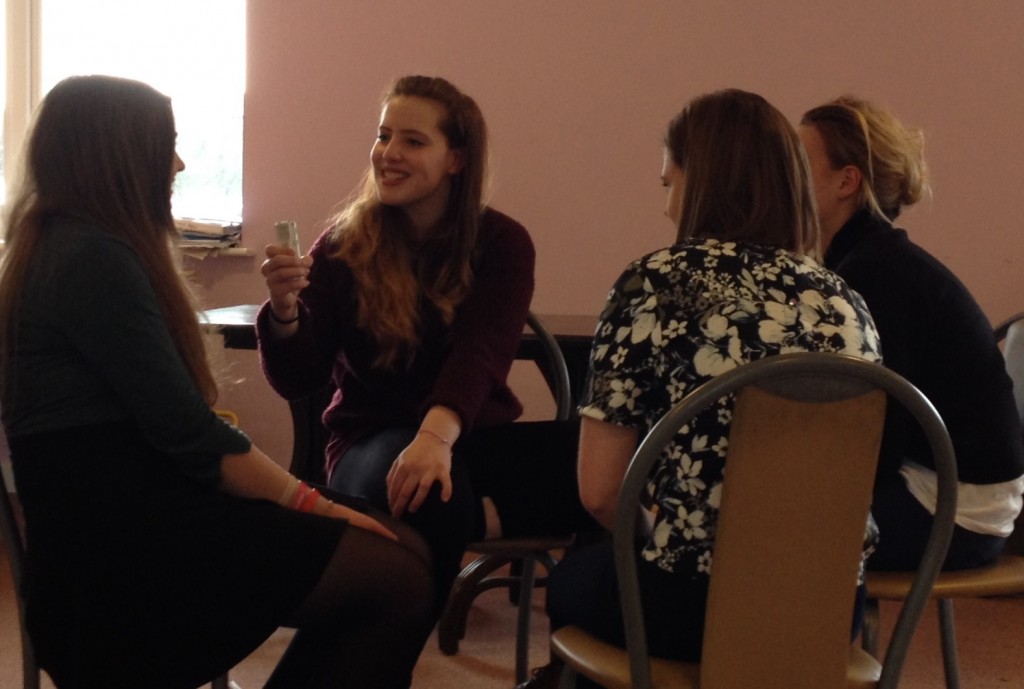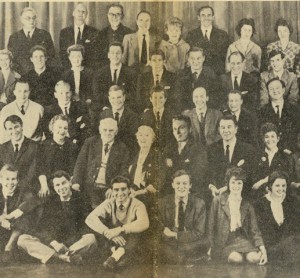
After several successful Memory Collection events in 2013, we are going even bigger and better in 2014. 11 Youth Theatre members are taking part in our Memory Collection project, attending training sessions run by our Oral Historian, Rib Davis, in effective interviewing techniques.
The session began by Youth Theatre members simply asking each other about their connection to the Youth Theatre. Surprisingly, many of the answers were incredibly similar. We realised that the use of closed questions narrowed down each answer making it difficult for personal stories to develop and discover things the interviewer didn’t already know.
Rib then got pairs to practice using open-ended questions with such phrases as, “Could you tell me a little bit more about that?” and “How did that make you feel?” The difference was remarkable – when people are given the opportunity to talk, they really will! This type of interviewing also allows for a much broader scope of discussion and several members remarked how much longer they were able to interview for.



